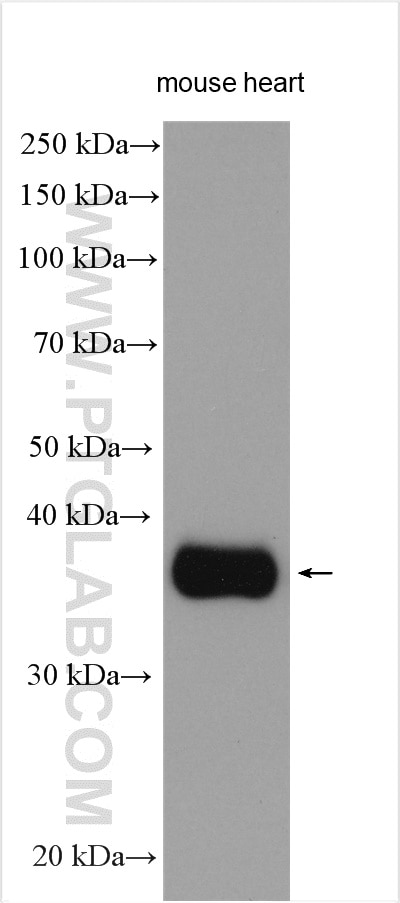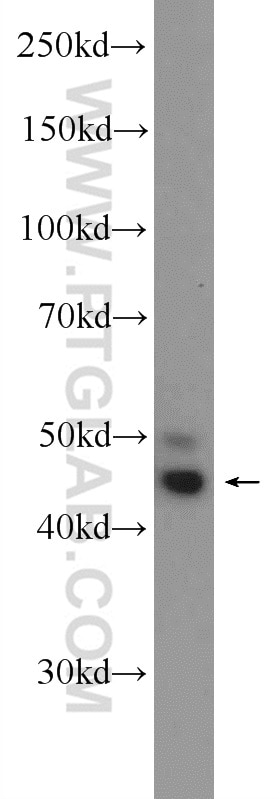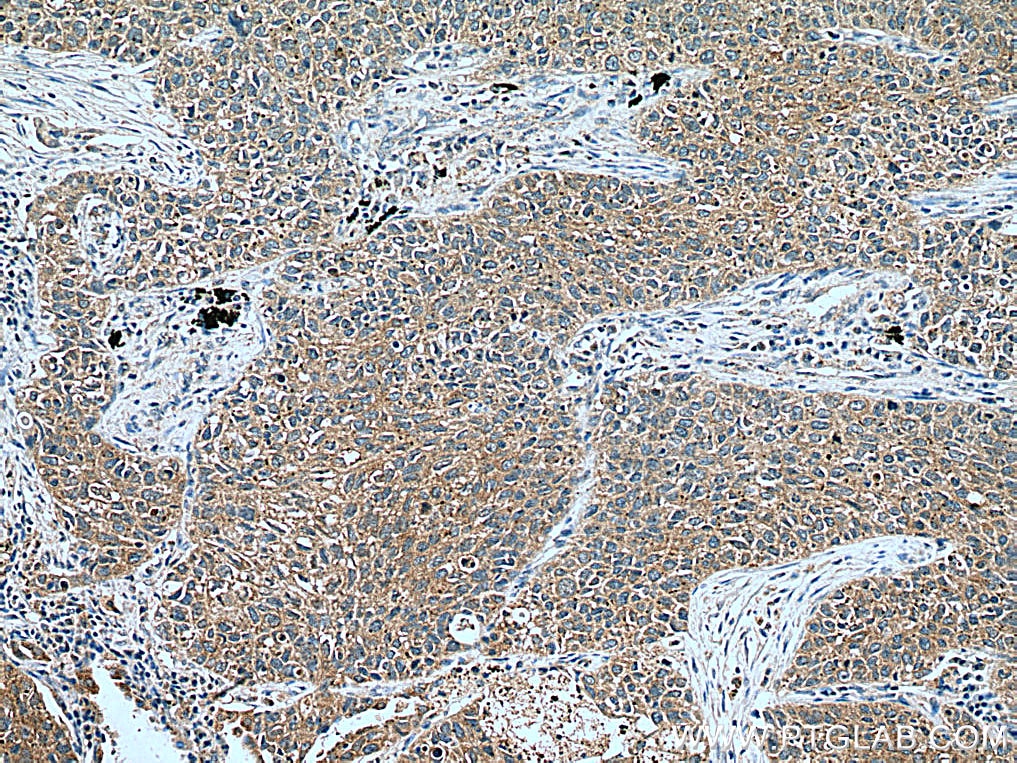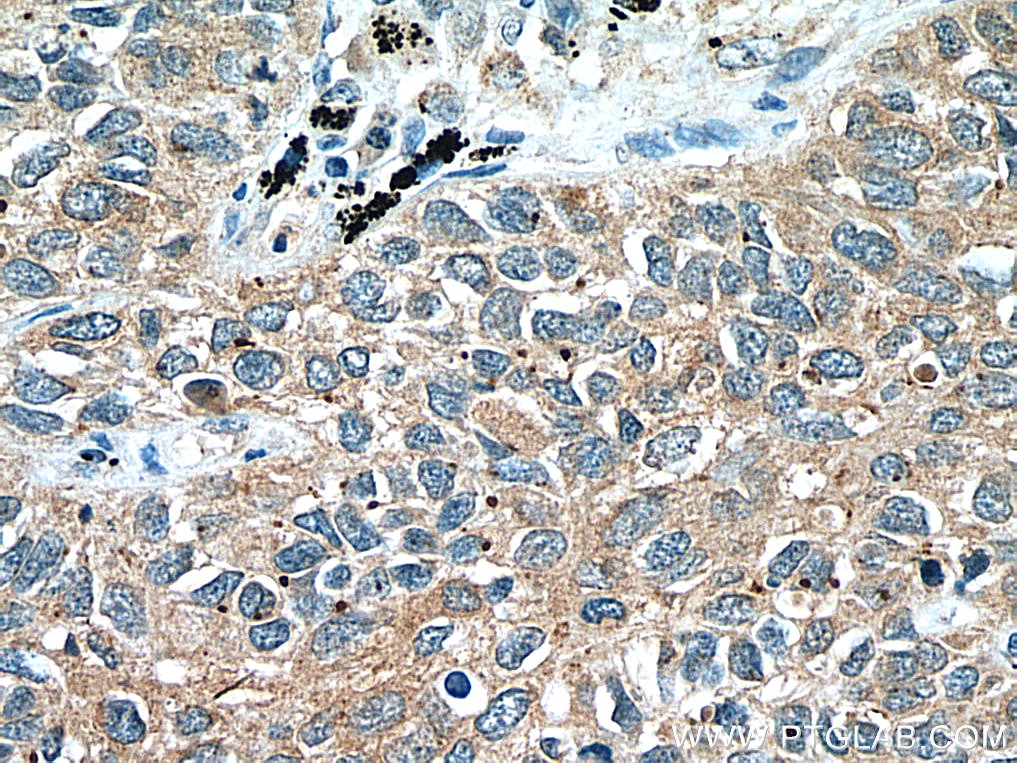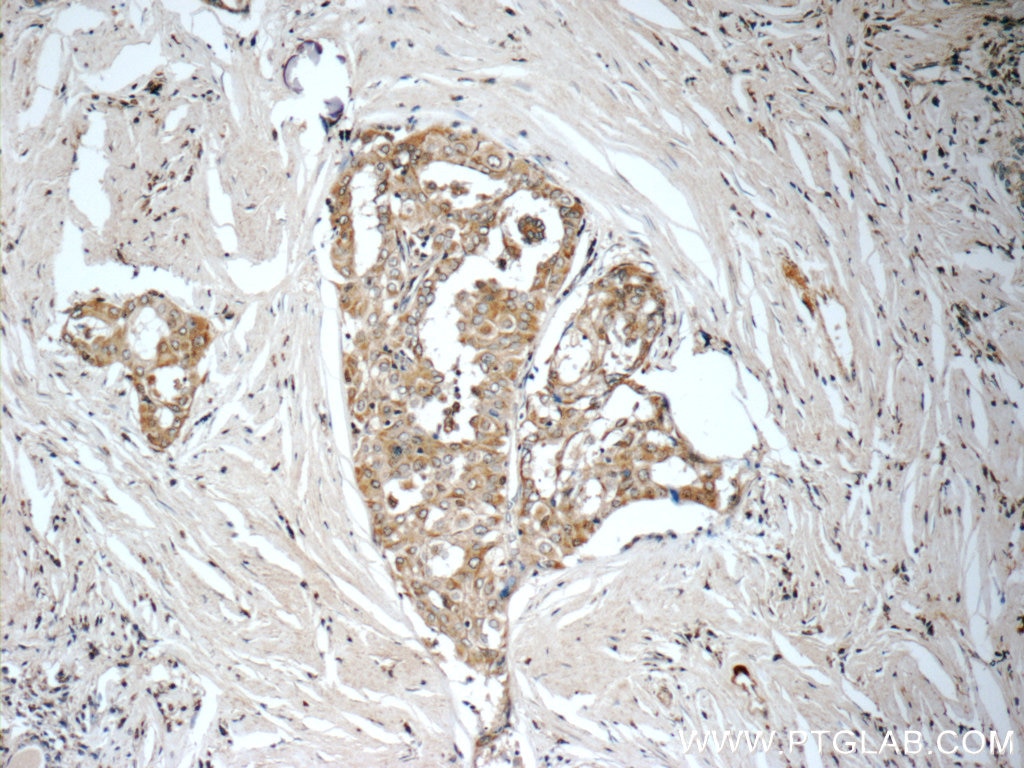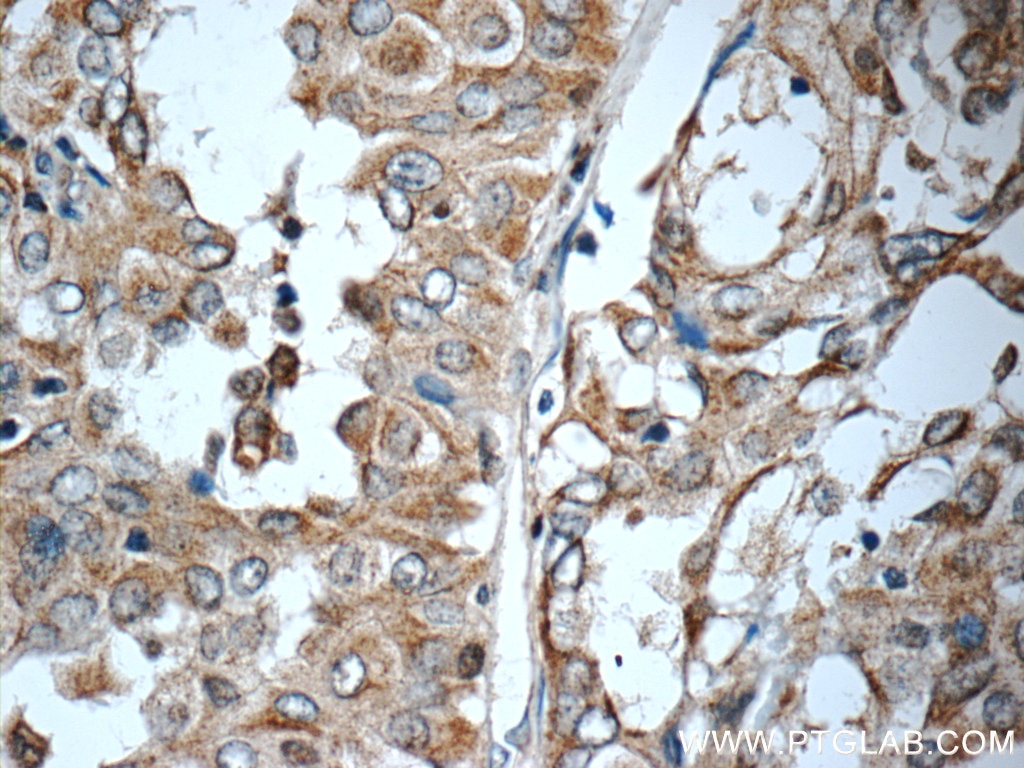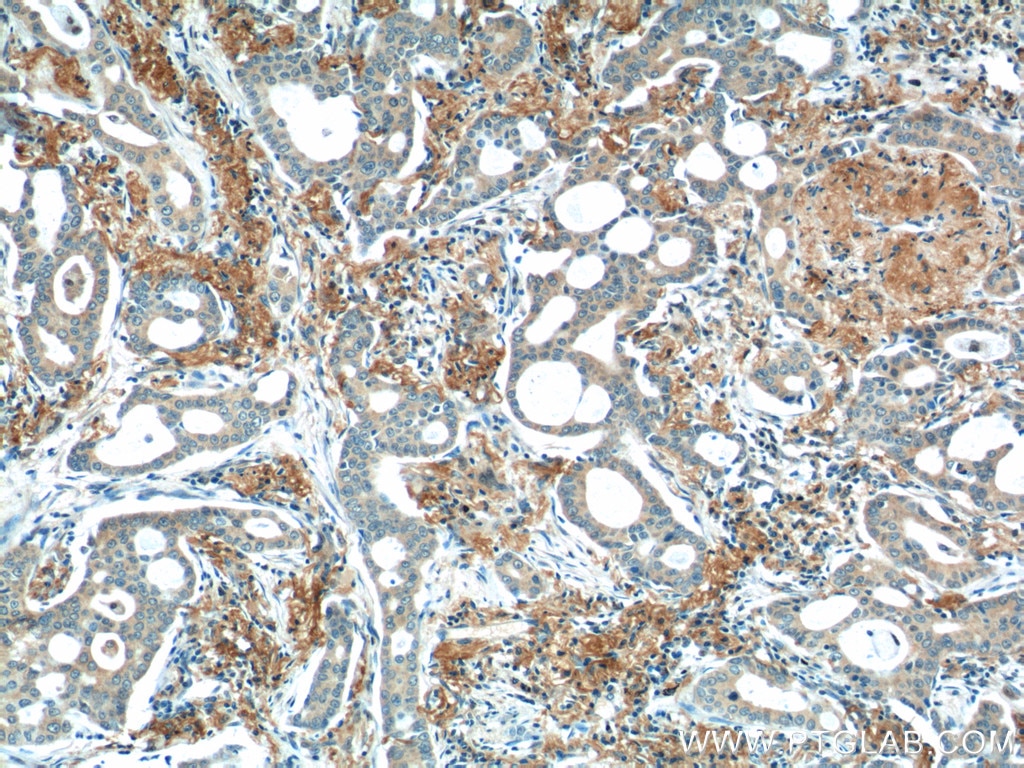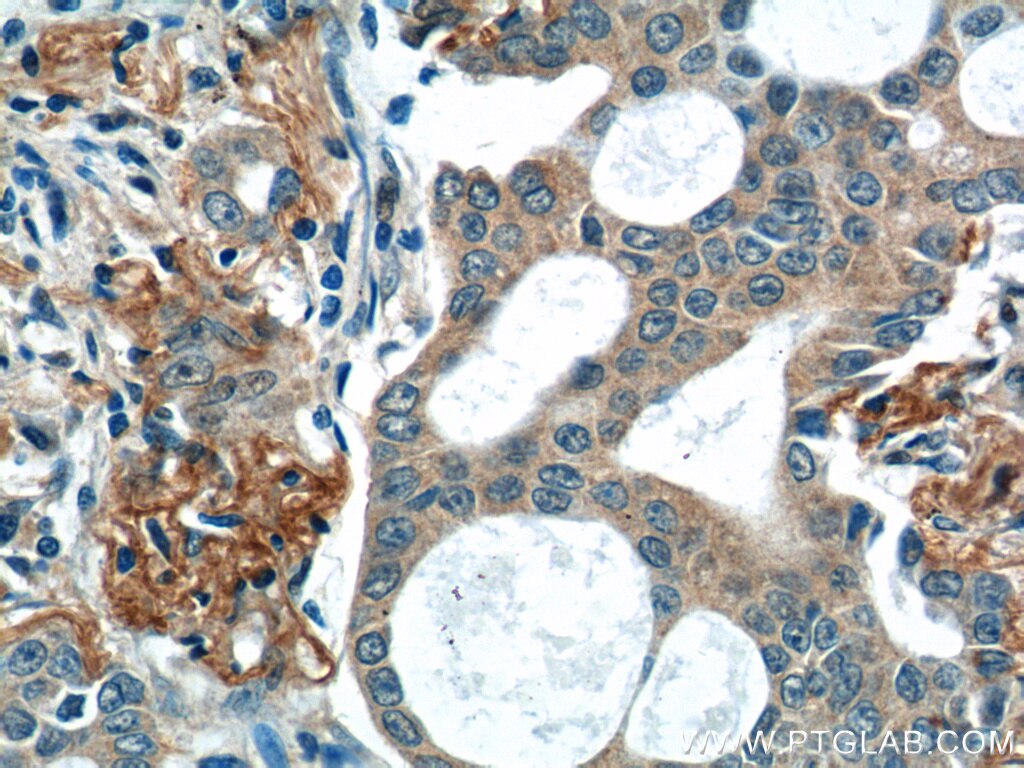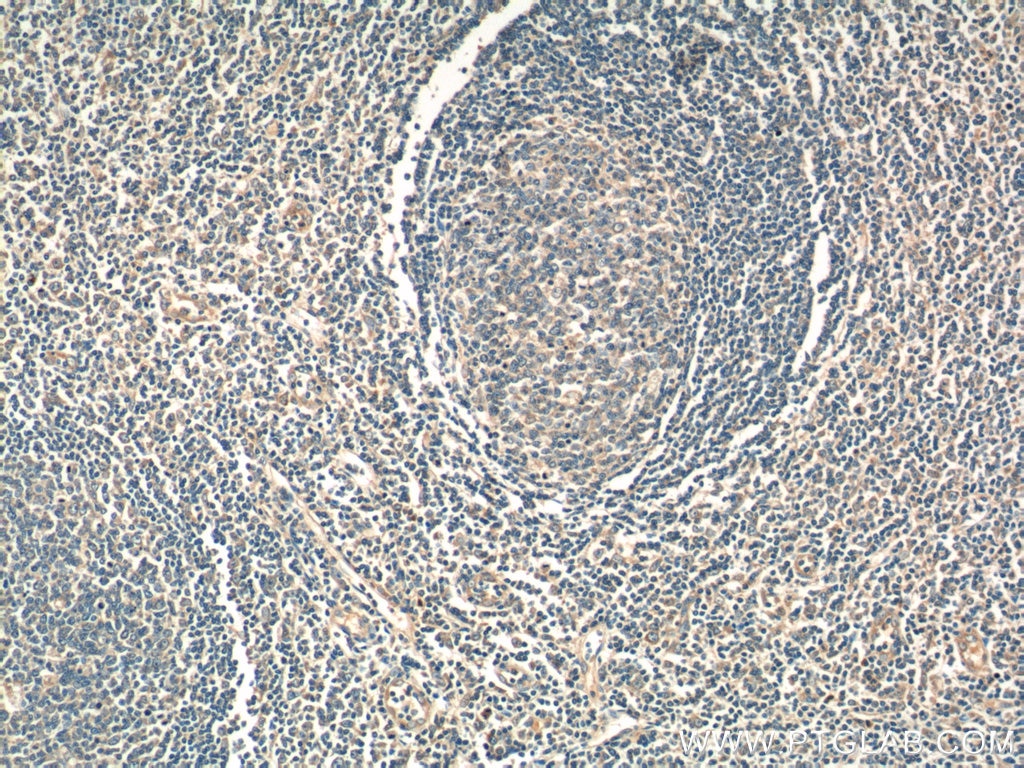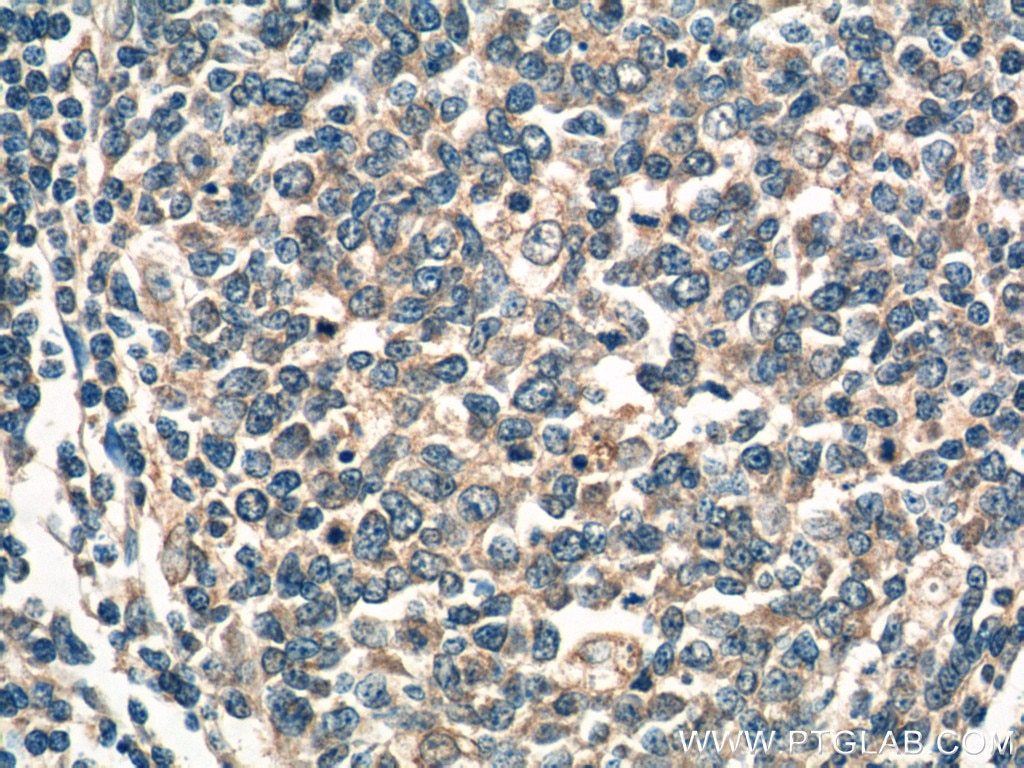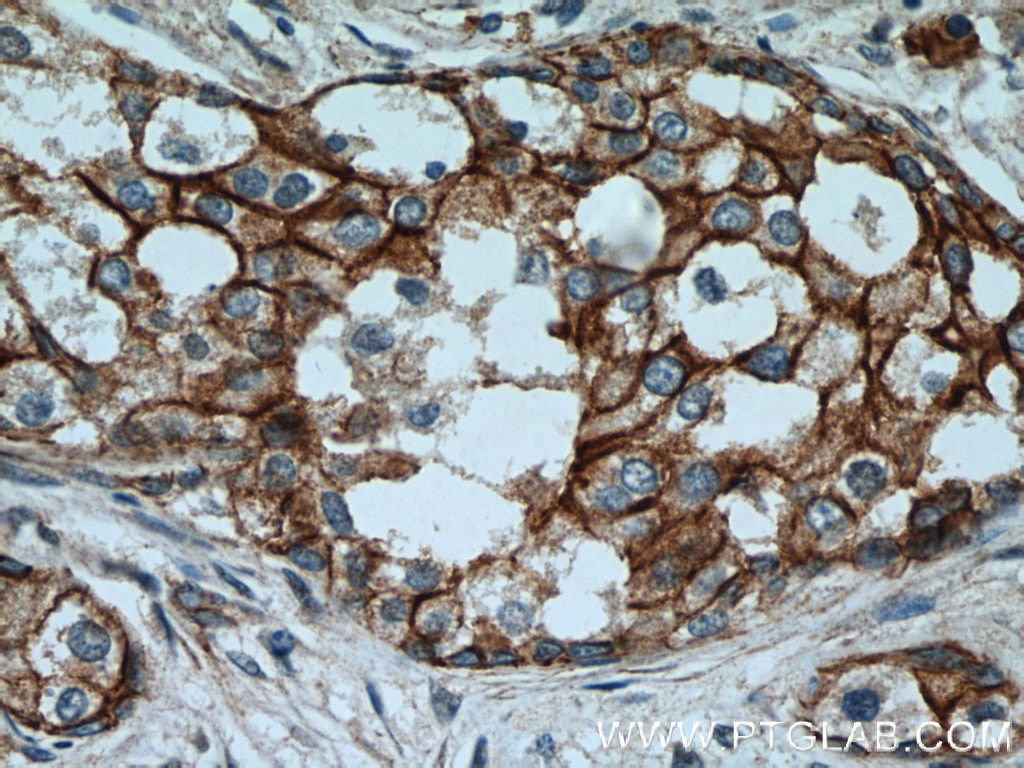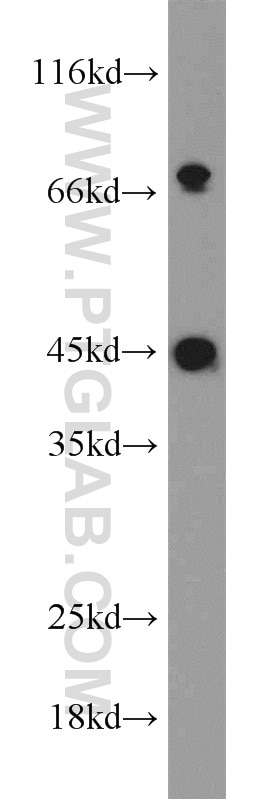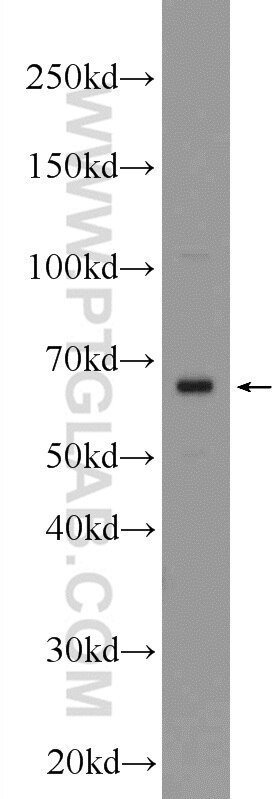- Featured Product
- KD/KO Validated
WNT5A/B Polyklonaler Antikörper
WNT5A/B Polyklonal Antikörper für IHC, WB, ELISA
Wirt / Isotyp
Kaninchen / IgG
Getestete Reaktivität
human, Maus und mehr (3)
Anwendung
WB, RIP, IP, IHC, IF, ELISA
Konjugation
Unkonjugiert
Kat-Nr. : 55184-1-AP
Synonyme
Galerie der Validierungsdaten
Geprüfte Anwendungen
| Erfolgreiche Detektion in WB | Mausherzgewebe, HUVEC-Zellen, PC-3-Zellen |
| Erfolgreiche Detektion in IHC | humanes Lungenkarzinomgewebe, humanes Schilddrüsenkarzinomgewebe, humanes Tonsillitisgewebe Hinweis: Antigendemaskierung mit TE-Puffer pH 9,0 empfohlen. (*) Wahlweise kann die Antigendemaskierung auch mit Citratpuffer pH 6,0 erfolgen. |
Empfohlene Verdünnung
| Anwendung | Verdünnung |
|---|---|
| Western Blot (WB) | WB : 1:500-1:3000 |
| Immunhistochemie (IHC) | IHC : 1:50-1:500 |
| It is recommended that this reagent should be titrated in each testing system to obtain optimal results. | |
| Sample-dependent, check data in validation data gallery | |
Veröffentlichte Anwendungen
| KD/KO | See 1 publications below |
| WB | See 31 publications below |
| IHC | See 6 publications below |
| IF | See 11 publications below |
| IP | See 1 publications below |
| RIP | See 1 publications below |
Produktinformation
55184-1-AP bindet in WB, RIP, IP, IHC, IF, ELISA WNT5A/B und zeigt Reaktivität mit human, Maus
| Getestete Reaktivität | human, Maus |
| In Publikationen genannte Reaktivität | human, Huhn, Maus, Ratte, Zebrafisch |
| Wirt / Isotyp | Kaninchen / IgG |
| Klonalität | Polyklonal |
| Typ | Antikörper |
| Immunogen | Peptid |
| Vollständiger Name | wingless-type MMTV integration site family, member 5A |
| Berechnetes Molekulargewicht | 42 kDa |
| Beobachtetes Molekulargewicht | 38 kDa |
| GenBank-Zugangsnummer | NM_003392 |
| Gene symbol | WNT5A |
| Gene ID (NCBI) | 7474 |
| Konjugation | Unkonjugiert |
| Form | Liquid |
| Reinigungsmethode | Antigen-Affinitätsreinigung |
| Lagerungspuffer | PBS mit 0.02% Natriumazid und 50% Glycerin pH 7.3. |
| Lagerungsbedingungen | Bei -20°C lagern. Nach dem Versand ein Jahr lang stabil Aliquotieren ist bei -20oC Lagerung nicht notwendig. 20ul Größen enthalten 0,1% BSA. |
Hintergrundinformationen
The WNT gene family consists of structurally related genes which encode secreted signaling proteins. There are 19 Wnt genes in the human genome that encode functionally distinct Wnt proteins. These proteins have been implicated in oncogenesis and in several developmental processes, including regulation of cell fate and patterning during embryogenesis. Wnt members bind to the Frizzled family of seven-pass transmembrane proteins and activate several signaling pathway. Wnt5A is a member of the Wnt family of proteins, which are 38-45 kDa secreted cysteine-rich proteins with hydrophobic signal peptides. This antibody can recognize WNT5A and WNT5B.
Protokolle
| Produktspezifische Protokolle | |
|---|---|
| WB protocol for WNT5A/B antibody 55184-1-AP | Protokoll herunterladen |
| IHC protocol for WNT5A/B antibody 55184-1-AP | Protokoll herunterladen |
| Standard-Protokolle | |
|---|---|
| Klicken Sie hier, um unsere Standardprotokolle anzuzeigen |
Publikationen
| Species | Application | Title |
|---|---|---|
Cell Metab Mitochondrial Dynamics Is Critical for the Full Pluripotency and Embryonic Developmental Potential of Pluripotent Stem Cells. | ||
Genome Biol Integrated genomic and transcriptomic analysis reveals unique characteristics of hepatic metastases and pro-metastatic role of complement C1q in pancreatic ductal adenocarcinoma. | ||
Acta Biomater Substrate stiffness regulates differentiation of induced pluripotent stem cells into heart valve endothelial cells. | ||
Biomaterials Osteogenesis potential of different titania nanotubes in oxidative stress microenvironment. | ||
Nanoscale An assembly-inducing PDC enabling the efficient nuclear delivery of nucleic acid for cancer stem-like cell suppression | ||
Arch Med Res RNA-binding Protein QKI Inhibits Osteogenic Differentiation Via Suppressing Wnt Pathway |
Rezensionen
The reviews below have been submitted by verified Proteintech customers who received an incentive forproviding their feedback.
FH Darin (Verified Customer) (11-02-2017) | No signal in lung epithelial cells from mice. However, it is possible that the protein is not expressed in lung epithelial cells.
|
